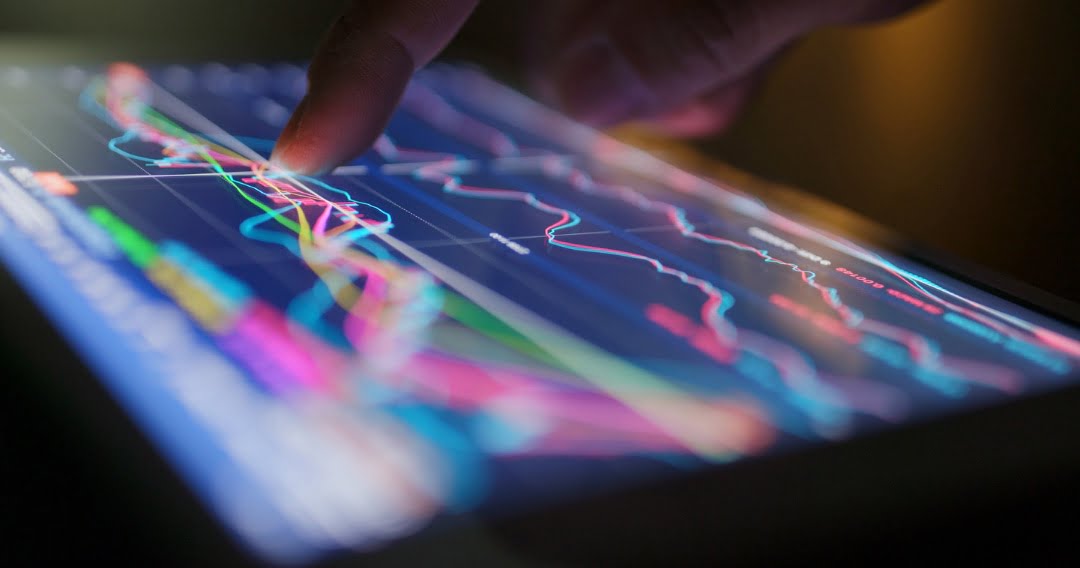Big data: it offers hotels great opportunities. But potentially also big losses. Because those who are asleep now could soon miss the boat. So be there in time! That's why we explain what big data is, what you can do with it as a hotel and why you shouldn't wait too long to collect big data.
What is big data?
It's one of those terms you hear over and over again: big data. But what exactly is it? There is no single definition. Big data is best described as extremely large sets of data coming into a company on a daily basis. It involves so much data that traditional database systems can no longer process it.
The four Vs
Some say big data has to satisfy the four Vs: volume, variety, velocity and value. In other words, it involves large amounts of information, the data is varied, there is velocity in coming in and processing, and all that data must ultimately deliver something.
So an Excel sheet listing the number of times room service was ordered is not big data. But do you measure things like:
- what was ordered;
- the guest's length of stay;
- the type of trip;
- the order history;
- the weather during the stay and more?
Can you connect this data, run analytics on it, make predictions and adjust the menu and price of room service based on that? Then you are using big data.
Sources and forms of information
This data is collected from a variety of sources and can take various forms. Some data you collect internally, such as the occupancy rate of your hotel. Other data comes from outside, such as information from social media. We also distinguish between structured and unstructured data.
Structured data
With structured data, you end up in a well-spread bed. This is data that has been collected for a specific purpose and is structured so you can start working with it immediately. For example, log files, data from sensors, data from barcodes and financial systems. But also data from forms on the internet, clicks and customer ratings through numbers or stars.

Unstructured data
Unstructured data is more difficult to process, due to the lack of structure. Think of e-mails, social media comments, video, audio, Word and PDF files and open questions from surveys. But also information coming from 'the internet of things': such as information from cars, cameras and thermostats. Some 80% of all data is unstructured. The trick is to bring this data together with structured data by structuring it.
What can you do with big data as a hotel?
You can then analyse the vast pool of information and make comparisons, connections and predictions. This is usually done with the help of artificial intelligence. These predictions help you in your business operations. We highlight some areas in which big data adds value for hotels:
- Turnover management
- Targeting marketing
- Improving the guest experience
- Offering additional facilities
- Staying ahead of the competition
1. Turnover management: more income, less costs
To get straight to the point: smart use of big data will increase your turnover and reduce your costs enormously. The predictions that come from analytics allow you to better anticipate room demand.
Adjusting prices to demand
An example: combine past occupancy rates with current bookings and external data such as when there are school holidays or important events in the city. With all this information, you can predict the demand for hotel rooms, on which you then adjust your prices. Just like the number of staff you schedule.
Paying more when it rains
Now, you probably already take into account holidays, events and data from previous years. With big data, you can go a step further. For instance, you might find out that people tend to pay €50 more if it's raining in their hometown at the time they book. Adjust your price accordingly and maximise your profits!
2. Target marketing
A second area where big data helps enormously is marketing. After all, you want to target your marketing as much as possible, naming the specific benefits that are important to a potential guest. For instance, a businessman does not care if your hotel offers childcare. But a perfect Wi-Fi connection and a good breakfast are important to him. Big data helps you gain insight and advertise in the most targeted way possible.
Targeting
Perhaps your big data analysis reveals that mainly young adults from Amsterdam book rooms with a jacuzzi. You can then show them an ad online naming this facility. You can also reach potential guests when the ad is most likely to be relevant to them, in the place where they are most likely to see it.
Say your hotel is near an airport. Because you have flight data linked to your occupancy rate, you can show a mobile ad to people at the airport, at the moment a flight is cancelled. Thus, big data allows you to use your marketing budget in the most effective way possible.

3. Improve the customer experience
Third, big data gives you more insight into guest satisfaction and helps improve the guest experience. By analysing various sources, you find out how guests think about you and what they want. For example, with collecting service usage data, reviews and feedback on social media.
Collecting data via voice assistant
Hotel chain Marriott is taking a smart approach to this by installing voice assistant Alexa in hotel rooms. This allows guests to access information about the hotel and the surrounding area, request hotel services, play music and control smart home products such as the lights, thermostat and TV. Not only does this give guests a flawless hotel experience and relieve the front desk, meanwhile Marriott collects interesting information about guests and their questions, requests and preferences.
4. Provide additional facilities
To go further into guest satisfaction: by collecting information from interactions with guests, you find out how to facilitate customers even better. It helps you make choices in offering new facilities, or discontinuing existing ones.
Cooperation with local businesses
Say guests regularly ask for certain fitness equipment, you may choose to renovate your gym. Big data can also help you partner with businesses in the region, such as discounts at a bike rental shop or a restaurant that is in high demand.
5. Check your competition
Finally, big data is also a way to peek smartly at your neighbours. After all, those who know their competitors will find it easier to stay ahead of them. You do this by gathering information from reviews, social media and travel reports, for example. Should people praise a certain restaurant menu or, on the contrary, express their dissatisfaction with the service, capitalise on these shortcomings or outdo your competition's plus points.

How do you collect and analyse this big data?
So how do you get started with big data? And how do you make sure you can still see the forest for the trees?
Start collecting internally
To start with, it is wise to get your internal data collection in order as soon as possible. After all, what you don't record now may not always be retrievable later. Fortunately, there are several Property Manager Systems (PMS) and reservation systems with extensive possibilities to store all kinds of customer information. Immerse yourself in them to get the most out of these systems!
Call in an expert
Next, it is smart to hire a data expert. After all, you have to be a bit of a whizzkid if you want to make chocolate out of huge mountains of information. There are tools for this, but even then you need someone who knows about it if you want to be serious. Someone who knows everything you can get out of the tool, how to visualise it and how to present it to others.
Starting small
By the way, this does not mean that big data is only for big hotel chains. Even with big data, you can start small. Think carefully about what your goal is and start with what is needed to achieve it, instead of collecting data at random until you can't see the wood for the trees. An expert can help you collect and analyse this data correctly and set up workable systems. Also, depending on your goal, he can make an analysis once in a while that you can then use yourself.
Gut feeling as a starting point
Your gut feeling or perception is sometimes a great starting point here. Suppose you notice that guests are suddenly waiting at reception for a very long time. This can be a good reason to use data to find out what is causing this and then solve it.
Why you shouldn't wait too long to collect big data
Whether it is a large hotel chain or a small hotel, it is smart to start with big data today. Because those who don't start collecting data now will have a backlog that cannot be caught up in a few years' time.
Data is the new gold
The growth of data is exponential as we increasingly live in a digital society. There have even been predictions that in 10 years only the data-driven companies stand tall. These are companies that make decisions based on data. Data is therefore called the new gold, that's how much value it has.
Booking platforms live by data
Look also at the well-known booking platforms, which took over the industry within a very short time. They have a higher market value than the big hotel chains, while data is really the only valuable thing they own. However, this allows them to respond perfectly to the potential guest's need, at the right time. As a result, these companies turn huge turnovers.
Don't fall behind competitors
Apart from that, you don't know to what extent your competitors are already engaging in big data. The further ahead they are, the harder they are to catch up. Conversely, of course, the same applies. If you start collecting data and developing in analytics now, in a few years you will have invaluable information in your hands.
Getting started?
This is therefore the time to start using big data if you want to benefit for years to come. We are happy to help you with this! First of all, we think along with you about which data is relevant for your hotel.
We will then look at what systems you use and what data collection opportunities therein. Think PMS systems, reservation systems and channel managers. We have the tools to link different channels. Like these systems, but also your website and social media. We collect the data from these in so-called data silos, on which we run analyses. Using artificial intelligence, we then make predictions that help you move forward. Think of it as your own crystal ball.
Want to know more about this? Call or email us at ease, our marketing experts are waiting for you!





